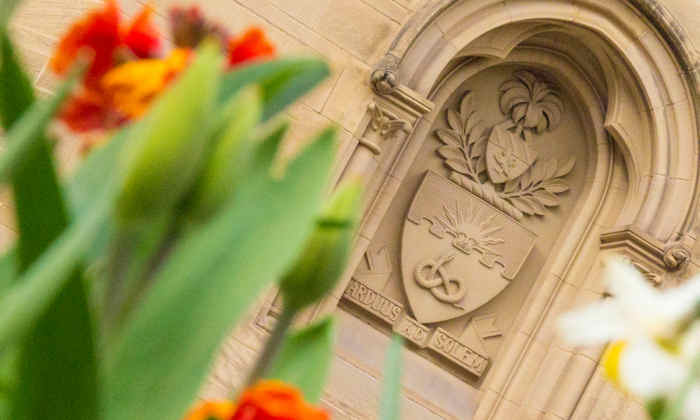Introducing hybrid working in the School of Arts, Languages and Cultures
13 Sep 2021
Jayne Hindle, Head of School Operations for School of Arts, Languages and Cultures discusses hybrid working

What does your role involve?
I am the Head of School Operations in the School of Arts, Languages (SALC) and Cultures. I oversee and lead the Professional Services (PS) team across key functional areas and this includes the University Language Centre, Martin Harris Centre, and Confucius Institute, which are all hosted in SALC. Essentially, I’m responsible for the smooth and efficient running of the School.
How have you approached discussing hybrid working with your team?
Like other units, we are phasing in hybrid working from Wednesday, 1 September on a team by team basis. We work closely with students and academic colleagues. Hence, we recognise the need to take a flexible approach to hybrid working – as always; we have to place the student experience and supporting our academics at the heart of what we do. Hybrid working gives us an exciting opportunity to review how we do things and improve efficiency.
We have also been part of the Humanities wide discussions through the Faculty Hybrid Working Group, which has established a set of Faculty norms that relate to our workplace and align with our School team charters. It’s important that we align with the other three Schools in Humanities to ensure consistency where possible and share good practice. It’s not just about changes to our place of work; this is a perfect time to look at everything we do through a different lens.
As a School PSLT, we have decided to have two meetings a month, one formal and informal one. One of those meetings will be on-campus, so that we will have a social event before the meeting. We’ve also drafted a senior staff rota to ensure two of us at all times are present on campus across our four main School sites. We’ve been doing this over the past few months, and it has worked well; we will adjust it as the occupancy of our buildings evolves.
Has it been easy or hard to determine which hybrid categories different roles fall into?
It’s been relatively easy for us. Most colleagues are planning a combination of both on-campus and working from home - and will be in the office for two to three days. We’re trying to keep things simple and not overcomplicate where possible and review as we go. For us, it is essential that we don’t put too many rules and regulations in place so we can be flexible and adapt to changing needs.
What kind of things will colleagues be doing on those days when they are on campus?
Our purpose is to be ambassadors for the University and delivering an excellent experience for the students and academic colleagues. Our role is about supporting and helping our students and visitors, and we want to create a buzz and a good atmosphere on-campus, so we have that in mind too when we look at introducing hybrid working. We are formulating team charters that will share with each other on our microsite.We want to be role models and lead by example, so when we are on-campus, we will be visible and out and about rather than spending time in lots of Zoom or Teams meetings which we could just as effectively do from home.
We’re thinking more consciously about our roles and how we can best use our time on campus. For example, things like creative activities and team building might be better done on-campus with colleagues. For example, we had mini ‘away days’ outside on-campus with a takeaway coffee or a walk in Whitworth Park in the summer. Who would imagine that an away day actually place on campus! We are all reassessing how we work, how we get the best out of each other, and how our place of work feeds into that.
How will you be evaluating how hybrid works for you and your team over the coming months?
We’ll have regular check-ins at our team meetings at a local level to see how staff respond to hybrid working. Staff wellbeing and ‘happiness’ will be a big indicator for us and feedback from all colleagues. As we do with other ways of working, we will work collaboratively with our academic colleagues to see what is working for them. We all view it as a fantastic opportunity to make things work even better than they did before. We are embracing the changes with renewed energy and commitment to our School, Faculty, and the University.
More information
